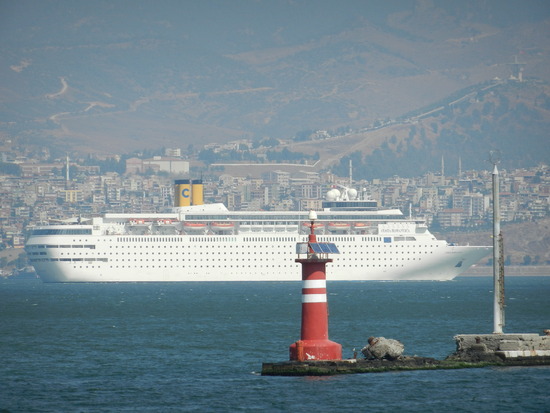UND criticizes Turkish government for lack of support
The İstanbul-based International Transporters Association (UND) on Thursday criticized an incentive package that was recently announced by the government, saying it does not provide any support to the land transportation segment of the logistics sector.The incentive package aims to stimulate the economy and reduce country’s current account deficit (CAD) by providing investments to certain industries and sectors that need to be supported while addressing the discrepancies in regional socio-economic development.
Speaking to the press in İstanbul, UND President Ruhi Engin Özmen expressed the opinion that the logistics sector is not happy with the incentive package because it does not generate any solutions to problem of the limited access companies in the sector have to financing. He also complained that incentive package has not brought any advantages to the sector because it only focused on the railroad and maritime transportation segments. Özmen then demanded incentives from the government in technical and operational fields of the road transportation segment.
The UND recently carried out a survey focusing on the current situation of the sector. The first part of this comprehensive study was released to the press on Thursday, aiming to provide first-hand analysis of the road transportation segment of the logistics sector in the country to the public. The study was conducted with the participation of 1,357 companies in the sector with the contribution of interviews carried out by 100 students from 20 different universities, also demonstrating an outstanding example cooperation between universities and industry.
Citing the results of the survey, which included 76 questions, Özmen said the incentives are extremely limited for the small and medium-sized enterprises (SMEs) in the sector and these companies want to take further steps to improve themselves in terms of technology and quality. He stressed that the incentives they would like, if provided, would have a positive effect on the road transportation segment in the context of infrastructure and operations. “With the improvements, it would also contribute to internationalization of the logistics sector by creating international connections and an expansion of the network,” he said, adding, “As a result, for sector to comply with the demand of foreign markets and to reach international standards, it is inevitable that we would benefit from incentives given to exporters.”
Responding to a question on how the current political and social turmoil in Syria and its relations with neighboring Turkey are affecting the sector, he emphasized that the Middle East market has been shrinking due to situation in Syria, stating, “Now with the use of alternative and longer routes, there have been delays in the transportation of goods, causing buyers to turn to other suppliers.” However, he mentioned that the volume of goods transported via Northern Iraq has been increasing, making up for the lessening trade through Syria. In addition, he suggested roll-on/roll-off (RORO) ferries between Egypt and Turkey, which began in end of April carrying Turkish goods to Gulf countries via Egypt from the Port of Mersin, be increased to speed up the transportation time. In addition, Özmen implied the need of new transportation corridors as well in the sector, mentioning UND hopes for a “southern silk road” passing through countries such as Iran, Pakistan and China.
Özmen stated that according to report, the road transporters in the logistics sector are clustered in the Marmara, Mediterranean and Southern Anatolia regions. A total of 34.7 percent of the companies are located in the Marmara region while 24.6 percent in the Mediterranean and 14.8 percent in Southern Anatolia regions. These companies also rank high in the regions that employ the highest number of people in the sector.
The report shows that the companies that have employees aged 50 and under is 83.7 percent, and the firms that employ workers aged between 50 and 100 correspond to 9.6 percent. A further 66 percent of employees from the firms that took the survey are male whereas 34 percent were female. It can also be seen that 69.5 percent of the employees are high school graduates, 10.5 percent hold associates degrees and 20 percent have undergraduate degrees. A total of 24 percent of the transporters stated that they intend to enter into new markets, especially companies in the Marmara and Southeast Anatolia regions, as 8 percent of the total number of firms in the survey have partnerships with foreign companies and 23 percent of them have offices outside of Turkey.
28.05.2012
SOURCE: TODAYS ZAMAN




